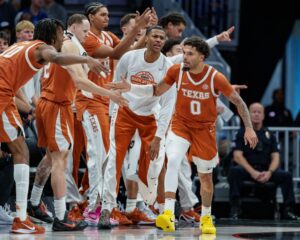Vermont Legislators File Bill to Repeal Mobile Sports Betting
-
Bookmakers Review
- February 18, 2025

In what would undoubtedly be uncharted waters, a trio of Vermont lawmakers have filed a bill that would repeal online sports betting after it has been in operation for a full year in the Green Mountain State. If passed, the bill could impact the top sportsbooks.
Just Say No
During the current legislative session, we have witnessed more bills from lawmakers seeking to expand their state’s gaming footprint than ever before. With all but 11 states without some form of sports betting, many of the states that do offer sports betting also have iGaming legislative initiatives before them.
Although only seven states currently offer online casino gambling, the allure of profits that are substantially larger than those generated from sports betting has attracted a blizzard of iGaming bills this session. Many of those bills will be derailed, but the crux of the matter is that most states are seeking to expand gambling revenue rather than contract it…except one.
Vermont has always walked to its own drum, but now it is making music that nobody understands. Three state lawmakers have put forth Bill H.133 to repeal the statutes that allow the state lottery and online sports betting. Vermont Representatives Thomas Stevens (D), Troy Headrick (I), and Michael Mrowicki (D) are sponsors of the bill, and it has certainly caught many off guard.
DraftKings, FanDuel, and Fanatics are the three sports betting operators in the state, but there are a total of six mobile sports betting licenses available. After just over a year since the launch of mobile sports betting in January 2024, the state has a combined handle of nearly $200 million, which has generated $21.9 million and delivered $6.3 million in tax revenues.
However, the logic behind the bill to rescind sports betting is that the legislative triumvirate believes sports betting and the state lottery take advantage of the most financially vulnerable. They feel the government has an obligation to decide what is in its citizens’ best interests, despite studies concluding only a small fraction of the population has a gambling addiction while the vast majority enjoy sports betting’s recreational benefits.
Regressive Taxation
Although Bill H.133 was authored by Representative Thomas Stevens, it is Representative Troy Headrick who has been the only one of the three sponsors to comment publicly. Headrick calls gambling a regressive tax, which essentially means lower-income people pay a higher effective tax rate because they cannot afford to lose their money, unlike wealthy people who have the discretionary income to gamble.
Studies show that people at the opposite ends of the pay scale gamble the most. In the United States, approximately 26% of people with an annual income of $100,000 or more gamble online, while 23% of those making less than $25,000 do the same. Those are the highest rates of any economic group in the US.
Representative Troy Headrick said, “State-sanctioned gaming functions as a camouflaged form of regressive taxation. It disproportionately harms low-income and working families who are forced into desperate financial decisions.”
The bill must pass the House and Senate before it awaits the governor’s signature. Needless to say, abandoning a revenue stream after it has already been proven to deliver the goods is going to be a hard sell to Headrick’s colleagues and ultimately, Governor Phil Scott.
Headrick does not appear to be optimistic, stating, “I won’t pretend to know how the governor thinks, but given his refusal to consider progressive tax reforms and his reliance on austerity measures that cut deepest into the lives of the most vulnerable, I doubt he’d be eager to give up the financial buffer that state-sanctioned gaming provides.”







